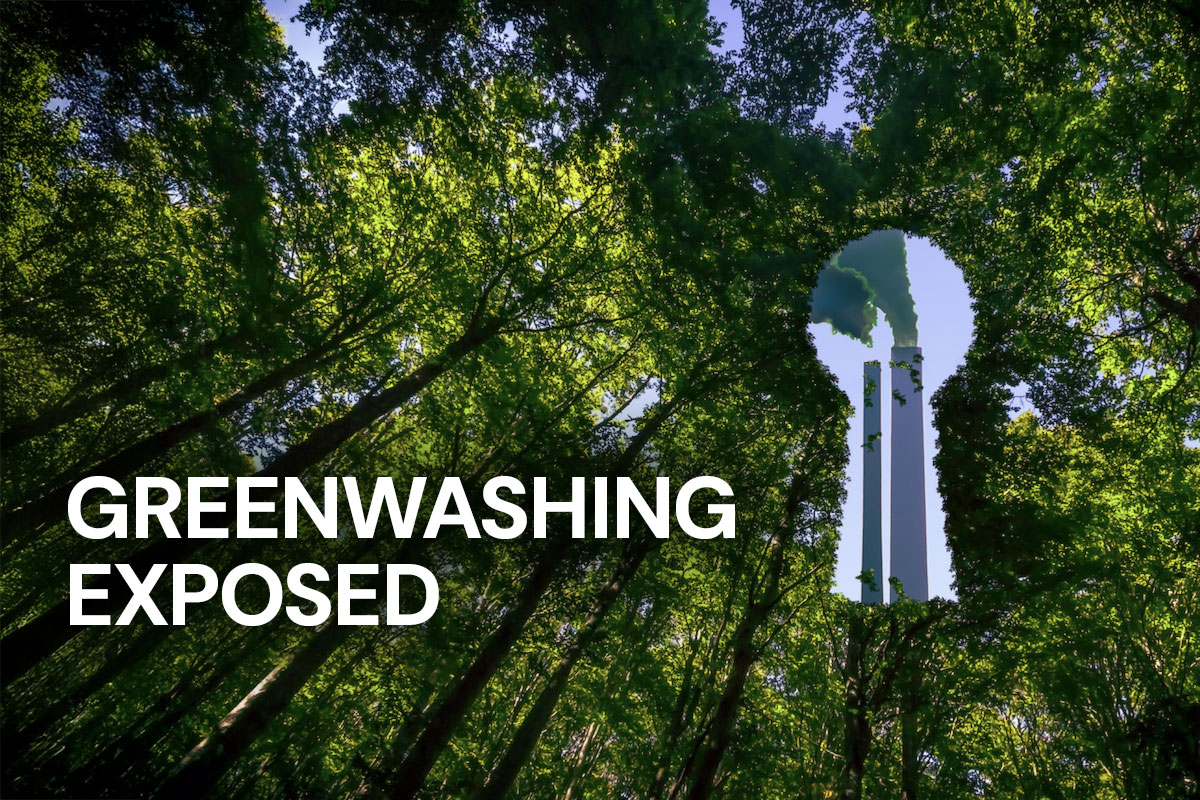
As people who care about the planet, we want to do our best to keep it clean, green, and healthy! One great way to start is by switching from standard products to eco-friendly alternatives. But there’s a caveat…
Whether it’s green-coloured labelling, earth-loving imagery, or planet-focused product descriptions, many companies exaggerate their sustainability. This tactic, otherwise known as greenwashing, often leads consumers to believe they are investing in sustainable products when that might not be the case.
So, to help you find truly safe, eco-friendly products, let’s talk about how to avoid greenwashing and the best resources for environmentally conscious consumers.

What is greenwashing?
Greenwashing is a term used to describe tactics employed by companies or organisations to make themselves or their products appear more environmentally friendly than they truly are. The word is a combination of “green”, suggesting care for the environment, and “washing”, implying a misleading portrayal or glossing over the truth.

How does greenwashing happen?
Greenwashing occurs when companies exaggerate their “green” benefits without providing evidence to support their claims. This is often paired with a lack of transparency regarding their actual environmental impact. Many businesses claim to be environmentally responsible while continuing to use unsustainable manufacturing processes, ingredients, or packaging – and sometimes all three.

Examples of greenwashing
Many products labelled as “eco-friendly”, “natural”, “sustainable”, “BPA-free”, or even “plastic-free” don’t fully live up to their claims. This is especially common in the reusable food and drinkware industry. Unfortunately, many companies producing reusable water bottles and food containers fail to tell the full story. In most cases, these items contain plastic components in their lids or colourful coatings that can leach chemicals and release microplastics — harmful substances that may end up in our bodies, oceans, and landfills.

How to spot greenwashing
Companies that emphasise environmental responsibility should provide proof to back up any claims they make about their products. That’s why we encourage every consumer to assess and verify the statements companies make. Look for full ingredient lists, clear and specific language, or affiliations with trusted environmental watchdog organisations. Without this kind of evidence (or something similar), it’s reasonable to assume that a company may be greenwashing.

How to choose truly eco-friendly products
As a consumer, it can be really difficult and time-consuming to avoid greenwashing. Fortunately, there are powerful, science-based resources available that do the hard work for you! We love MADE SAFE®, a non-profit organisation that conducts rigorous product testing. Their incredible work connects consumers with products that have undergone certification focused on both human health and environmental impact.

At Pura Stainless, we believe you should be able to confidently choose products that are safe for your family and the planet. That’s why every single Pura product is reusable, recyclable, MADE SAFE® certified, 100% plastic-free, and free from harmful chemicals — ensuring you never have to worry about greenwashing of any kind. In fact, our bottles are the only ones on the market to have achieved MADE SAFE® certification! To see for yourself, find Pura on the MADE SAFE® website or visit our own website to view our ingredients list and shop today!



